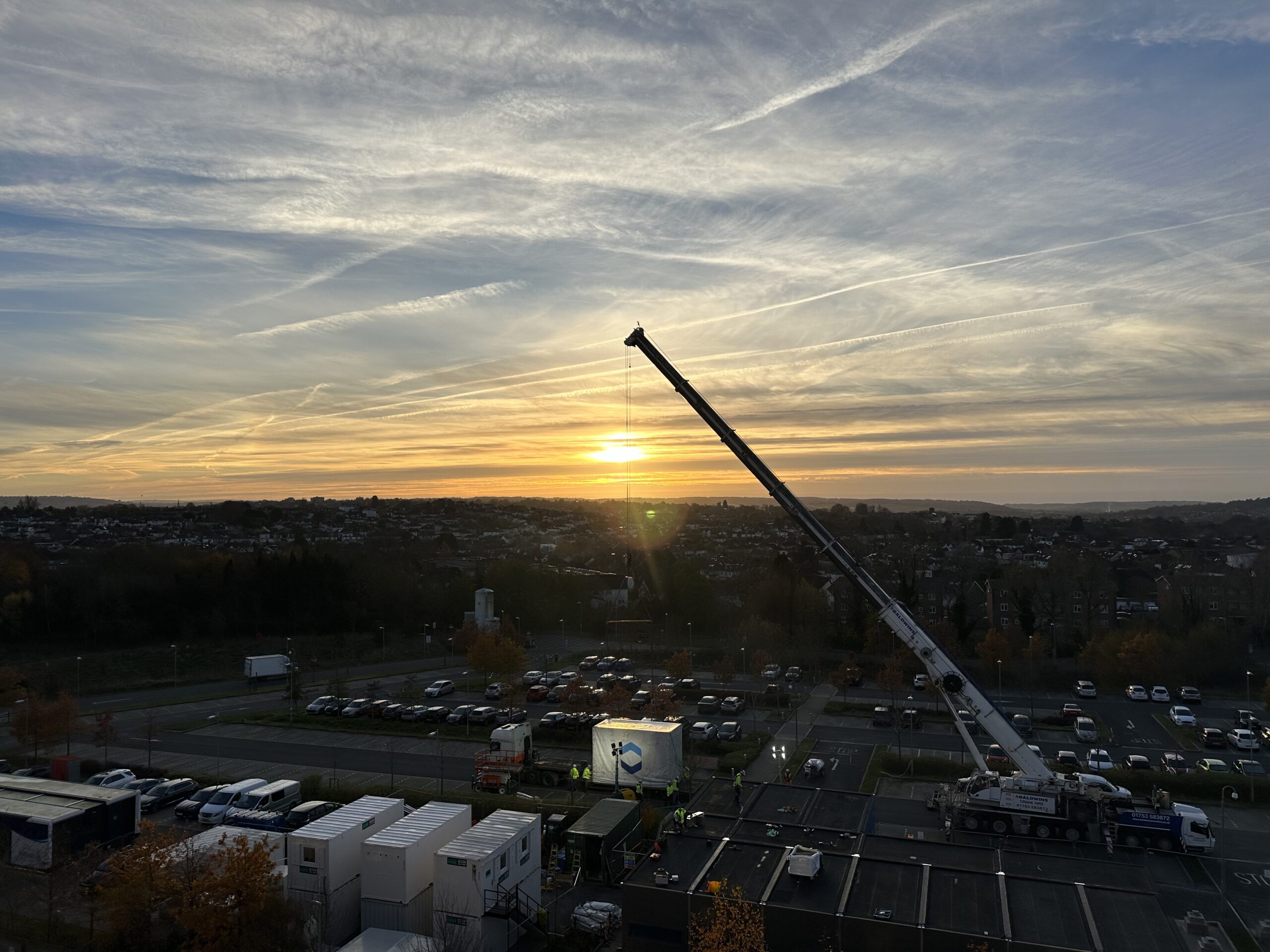Professor Yong Wang is head of structural and fire engineering at the University of Manchester, and an internationally renowned researcher on fire resistance. He has advised Q-bital on meeting stringent building regulations at a large hospital NHS Foundation Trust’s most recent modular building installation.
Professor Wang has worked in collaboration with Q-bital on various projects, including the current and ongoing project at a large hospital NHS Foundation Trust. Here, the consultancy is focused around two key areas – advising on standard fire resistance testing to gain the maximum value of limited tests and using test results to support fire safety design and construction.
Advice is provided on material selection, how they are arranged and joined to form a system, so that the system meets the requirements of Building Regulations ‘Approved Document B’ for fire safety and other additional requirements relevant to their specific use such as hospitals.
These requirements ensure the structure is safe in the event of fire attack and does not spread from one module to the next. Achieving these requirements is critical so the building occupants have sufficient time to escape to a place of safety and firefighters can safely perform search and rescue activities.
In any building, means of escape is the most crucial requirement. Local means of escape is concerned with people who are in the vicinity of fire origin and whose evacuation is affected by smoke and other fire hazards. For people away from the vicinity of fire, it is important their means of escape is not adversely affected. This is achieved by ensuring the construction has a sufficient fire resistance rating. In hospitals, the required fire resistance rating is higher than in other buildings due to difficulties of evacuation in this particular type of occupancy including patients, doctors, nurses and all hospital staff. The teams at Q-bital and the University of Manchester work closely to ensure that the stringent requirements on fire resistance for hospital buildings are met or exceeded.
Although the work on fire resistance is only part of the totality of fire safety, other parts including means of escape (e.g. in designing alarms and sprinklers), internal and external lining material selection, and firefighting access, Professor Wang works with other Q-bital fire engineers and interested parties (e.g. building control and architects) to ensure all fire risks are assessed and the requirements on fire resistance are correctly interpretated.
In 2023, the National Fire Chiefs Council (NFCC) published a document outlining concerns about modular buildings. Further, the government has commissioned the British Standards Institution (BSI) to develop a new standard for homes built using MMC, which we wholeheartedly welcome here at Q-bital.
In a care setting, particularly a hospital, this is even more pertinent, because not all occupants are primed to evacuate at speed – they may be limited by injury or illness or indeed, bed-bound.
The consultancy and subsequent reports submitted by professor Wang and the team at the University of Manchester has meant that the strictest guidelines have been followed, based on their understanding of the fundamentals of structural engineering and fire safety, and their expertise and experiences acquired over many decades through 3D modelling of heat transfer and structural behaviour, fire testing, education and training, and participation in writing fire resistance design standards. The deep knowledge from a leading academic is vital to help Q-bital not only in gaining building regulation approval, but having confidence in their buildings achieving the highest level of fire safety.
Modular buildings create diverse challenges of fire safety for their designers and manufacturers, when compared with traditional building construction; you don’t get the ready-made solutions that come with conventional construction.
In modular buildings, many materials are used, and they are arranged in numerous complex ways, thus creating bespoke products and systems when any modification is involved. It is important to not only understand the characteristics of individual materials and how they perform when exposed to fire, but also how they behave when forming part of a highly integrated system in modular building construction.
Because of the lack of standard solutions and the impossibility of fire resistance testing of every single modification in modular construction, the value of any fire resistance testing must be maximised to have the widest applicability when used to justify future extensions and modifications. In this respect, Professor Wang and the Q-bital team work closely to ensure that the worst case scenario (in terms of material selection/dimensions/arrangement and applied structural loads) is tested so that any future modifications will not be detrimental to fire safety.
Maximising the value of an expensive fire resistance test also requires careful consideration of installing additional measuring devices (thermocouples and displacement transducers) to the bare minimum according to the standard fire resistance testing standard, and taking the fire test to the limit so that the test results yield much richer information for further development of modular construction systems.


Q-bital Healthcare Solutions
Unit 1144 Regent Court, The Square, Gloucester Business Park, Gloucester, GL3 4AD
